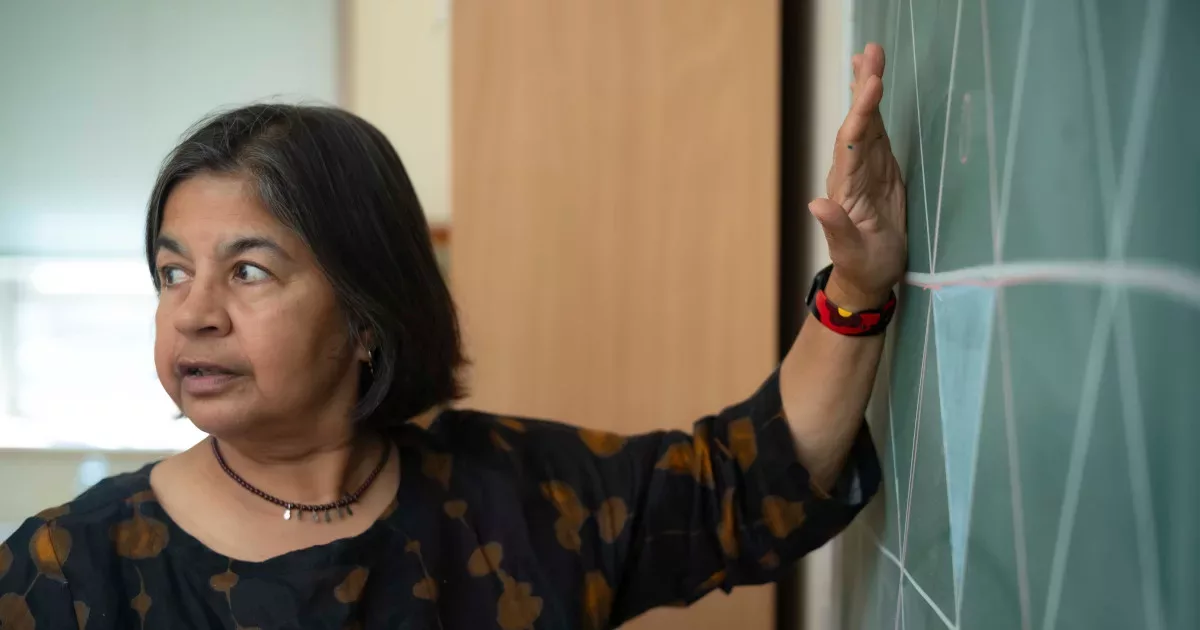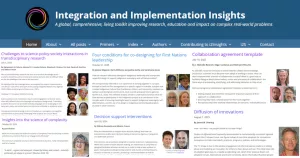Nalini Joshi: “Mathematics can shape a sustainable future”
Mathematical thinking can drive solutions for climate, energy and many other development issues

How are you concerned with sustainability in your work?
Nalini Joshi: I don’t work directly on sustainability because my research focuses on theoretical developments in dynamical systems, systems that evolve over time. These models have potential applications in areas like climate systems, but my work itself is not specifically aimed at sustainability.
How do you feel mathematicians could contribute to sustainability?
N.J.: Mathematically trained people can help in many ways. Let me take the example of my colleague John Boland, from the University of South Australia, who modeled the integration of renewable energy sources like solar and wind into the Australian electricity grid. Early on, people worried that fluctuations in wind or sun would cause unstable energy supply, but his modeling showed how to manage this using topography, location data, and time-series analysis. His work with mathematics also supported thermal efficiency studies for housing, optimization of renewable energy incentives, and analysis of energy market fluctuations. Skills like optimization, data analysis, network modeling, and AI-based trend detection are essential.
What other areas of sustainability benefit from applied mathematics?
N.J.: Many. Some colleagues model river flows, tidal changes, and flood risks as climate change alters water levels. Others work on bushfire modeling, integrating indigenous knowledge on land management. Applied mathematicians also study urban heat effects, resource allocation, and environmental risks.
What should mathematicians focus on to support sustainable development?
N.J.: The best progress happens when mathematicians collaborate with specialists from other fields, like engineers, grid operators, or policymakers. In Australia, events called Mathematics in Industry Study Group bring companies and mathematicians together to solve real-world problems in one intensive week. Such initiatives could be expanded internationally to address sustainability challenges.
Some mathematicians focus on very theoretical research. How could they be engaged in sustainability work?
N.J.: Theoretical mathematicians often pivot to applied problems through personal connections. When they have opportunities to engage with others, collaborations can arise. For example, in the past, algebraic geometers contributed to cryptography; topologists developed topological data analysis to detect gaps in datasets, that have been applied for instance to improve CCTV coverage in urban areas. Creating opportunities for interaction is key. When people meet, share problems, and see the urgency, theory and practice can merge naturally.
How could the International Mathematical Union promote such collaboration?
N.J.: The International Congress of Mathematicians, held every four years, could host a panel on sustainability. This would engage younger researchers and highlight urgent global challenges. Moreover, the IMU’s Commission for Developing Countries could support training and research in regions facing severe climate impacts. Partnerships with organizations like the UN or foundations might provide funding.
What would motivate mathematicians to engage with sustainability?
N.J.: History shows that mathematicians mobilize when urgency is clear: think for instance of the deciphering of the Enigma German coding machine during World War II. If we raise awareness about the environmental crisis as a pressing, shared threat, mathematicians will step up with creativity and commitment.
Interview by Luc Allemand
SUBSCRIBE TO OUR NEWSLETTER
To stay up to date with our projects and the development of the EHC
Read more articles

WAAS Talks on Science for Human Security: Renewable Energy
On 23rd February 2026, an expert panel will discuss renewable energy as part of the EHC-WAAS program of sciences for

Gian Francesco Giudice: “Ethical responsibility is essential in fundamental research”
From hypothetical black holes to environmental impact studies, CERN navigates risk, transparency, and moral responsibility at the frontiers of human

Dealing with the complexity of society and environment
A global toolkit for tackling complex problems with more than 600 different methods Ever wish you had a free toolkit

The Moon & the Global South: Voices, Risks & Promise
Researchers warn that without inclusive governance, the Moon could become “a new arena for old patterns of exclusion” When rockets